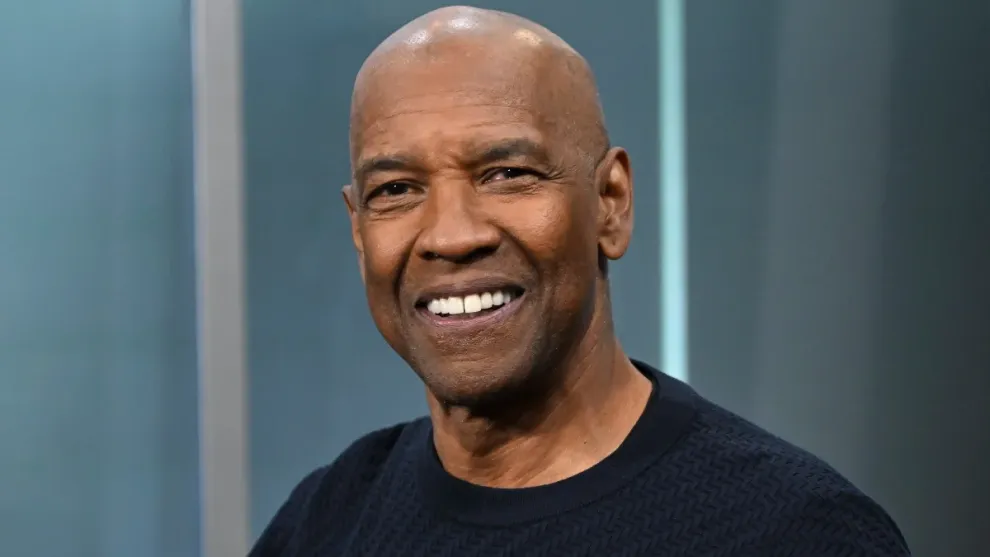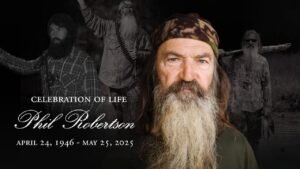Denzel Washington: Faith and Film – A Journey of an Oscar-Winning Actor

Introduction to Denzel Washington
Denzel Washington stands as a towering figure in the landscape of American cinema, known for both his commanding performances and directorial pursuits. His journey began in Mount Vernon, New York, where he was born on December 28, 1954. From a young age, Washington exhibited a passion for the performing arts, participating in school plays and honing his craft at Fordham University. His break came in the 1980s when he appeared in the television series “St. Elsewhere,” which showcased his considerable talent and paved the way for a flourishing film career.
Denzel’s Early Life and Career Beginnings
Denzel Washington was born on December 28, 1954, in Mount Vernon, New York. Growing up in a family that espoused strong values, he was raised by his mother, a beauty salon owner, and his father, a Pentecostal minister. These influences played a significant role in shaping his character and work ethic, instilling in him a sense of discipline and determination. His upbringing in a religious household contributed to a sense of moral responsibility, a theme that often resonates in his film choices and personal life.
Washington’s early education began at Mount Vernon High School, where he displayed a keen interest in the arts, particularly through involvement in sports and drama. His passion for acting emerged during this time, but it was not until he attended Fordham University that he began to hone his craft more seriously. At Fordham, he studied drama and earned a Bachelor of Arts degree in 1977, which laid the groundwork for his future endeavors in the film industry. His educational experience enriched his understanding of performance, enabling him to embrace his potential fully.
Following his graduation, Washington embarked on a challenging journey in theater and television, initially appearing in various productions and series. His breakout role came in the television film “Wilma” in 1977, which showcased his talent and drew attention from casting directors. This role marked the beginning of a fruitful career, leading him through various performing arts mediums, including stage performances in New York City and guest appearances on prestigious television shows. Through perseverance and dedication, Washington’s efforts in those formative years prepared him for the success he would ultimately achieve in Hollywood.
The Role of Faith in Denzel’s Life
Denzel Washington’s journey as an actor is deeply intertwined with his faith, which has notably shaped his life choices and professional endeavors. Born on December 28, 1954, in Mount Vernon, New York, Washington was raised in a Christian household. His mother, a hairstylist, and his father, a Pentecostal minister, instilled strong moral values and an unwavering belief in God from an early age. This foundation played a crucial role in his development, offering a sense of purpose and direction that influenced not only his personal decisions but also his career in the film industry.
Throughout his illustrious career, Washington has often referred to his faith as a guiding principle, helping him navigate the complexities of fame and success. He has openly acknowledged that his Christian beliefs inform the roles he chooses and the messages he wants to convey through his work. The actor has been quoted saying, “I pray to God to be a great actor, and I have to work hard for it.” This sentiment underscores his understanding that while faith is essential, diligence and dedication are indispensable components of achieving success in any field.
Moreover, Washington’s faith has inspired him to take on roles that promote positive values, resonate with audiences, and engage with spiritual themes. Films such as “The Great Debaters” and “Fences” showcase not only his exceptional acting abilities but also the moral dilemmas and social issues entwined with his beliefs. Moreover, his commitment to faith has led him to engage in numerous philanthropic efforts, aligning his moral compass with practical actions aimed at uplifting others. Washington’s steadfast devotion to his faith ultimately illustrates how it remains a pivotal element of his identity, both as an accomplished actor and as a person navigating life’s challenges.
Denzel’s Insights on Faith in His Work
Denzel Washington, an acclaimed actor, has consistently integrated themes of faith and morality into his performances, using his platform not just for entertainment but also for reflection and inspiration. His films often depict complex characters who embody moral dilemmas, allowing audiences to engage with deeper ethical questions. For instance, in films like “The Tragedy of Macbeth,” Washington explores themes of ambition and guilt, drawing upon Shakespeare’s text to highlight the moral consequences of one’s actions. His portrayal of Macbeth underscores a profound internal conflict that mirrors the struggles we face in our own lives, creating a universal resonance that touches on the importance of faith.
Another notable example is the film “Flight,” where Washington’s character grapples with addiction and redemption. The narrative arc of a flawed hero seeking grace dramatically illustrates the power of faith in personal transformation. In interviews, Washington has expressed that he believes faith plays a crucial role in storytelling; it serves as a powerful medium through which characters, and by extension audiences, can confront their own beliefs and values. This conviction drives much of his work and provides a grounding element in his performances, allowing viewers to connect on both emotional and spiritual levels.
Interviews and Public Statements About Faith
Denzel Washington has frequently engaged with the topic of faith throughout his career, offering insights and reflections in various interviews and public statements. His consistent candidness about his spiritual beliefs showcases how integral faith is to his identity and personal ethos. In a notable interview with The Guardian, Washington stated, “I pray every day. I just feel that it’s very important to have a relationship with God.” This quote encapsulates his devotion and emphasizes the role of daily communion with his beliefs in guiding him through both personal challenges and career choices.
Moreover, Washington often refers to the importance of gratitude in his life, attributing his success to divine guidance. He remarked during a discussion at the 2015 Philadelphia Film Festival, “I don’t take any of this for granted. I know where my gifts come from.” His statements serve as a reminder that he views his accolades not merely as personal achievements but as blessings that bear a greater purpose.
In another significant dialogue, he spoke about the struggle of maintaining integrity amidst the Hollywood landscape. Washington asserted, “We’re all still striving to find our truth. For me, it’s about being true to my faith.” This reveals how he navigates the complexities of fame while staying aligned with his core spiritual values.
Washington’s public discussions about faith have positively impacted his relationships within the industry. Colleagues have noted his grounded nature and the respect he commands, which largely stems from his authenticity. By combining a celebrated career with a profound faith, Denzel Washington continues to inspire many through his words and actions, demonstrating that spiritual belief can coexist harmoniously with professional ambition.
The Influence of Faith on His Career Choices
Denzel Washington, the acclaimed actor, has often spoken about the profound impact of his faith on both his personal life and professional choices. Throughout his illustrious career, he has demonstrated a discerning approach when selecting film roles, often prioritizing projects that resonate with his core values and beliefs. This intentionality has led him to turn down lucrative offers that did not align with his moral compass, showcasing his commitment to integrity both in and out of the spotlight.
One notable instance of this principle in action was Washington’s decision to decline various violent or morally ambiguous roles that did not reflect his values. Instead, he gravitated towards projects that explored themes of redemption, resilience, and moral dilemmas, underscoring his Jesuit upbringing and the enduring influence of spirituality in his life. His performances in films such as “The Book of Eli” and “Fences” exemplify how he weaves his faith’s principles into the narratives, allowing audiences to engage with deeper questions about faith, sacrifice, and family.
Moreover, Washington has utilized his platform to advocate for social issues that align with his beliefs. He has expressed a strong commitment to addressing matters such as racial inequality, education, and the importance of community support, often emphasizing the role of faith in driving social change. Denzel’s production projects frequently reflect these themes, shining a light on stories that otherwise might remain untold. In doing so, he not only upholds his values but also inspires others within the industry to consider the broader implications of their work.
Washington’s career trajectory serves as a testament to how faith can influence artistic choices profoundly. By selectively engaging with roles that resonate with his beliefs and using his influence to draw attention to significant issues, he exemplifies an actor committed to integrity and purpose in both his vocation and life.
Denzel’s Philanthropic Efforts Inspired by Faith
Denzel Washington’s philanthropic contributions are closely intertwined with his deep-rooted faith, which motivates him to give back to the community in meaningful ways. His commitment to philanthropy is evident through various initiatives aimed at enhancing the lives of underprivileged individuals and fostering educational opportunities. Washington’s dedication to supporting education is particularly salient; he has made significant donations to institutions such as the University of Pennsylvania, where he established scholarships for performing arts students. His belief in the power of education stems from his personal experiences and is emblematic of his commitment to nurturing the next generation of talent.
In addition to direct financial contributions, Washington has actively participated in mentorship programs designed to empower young individuals, especially those from disadvantaged backgrounds. His involvement in these initiatives serves as a testament to his belief that guidance and support can significantly alter the trajectory of a young person’s life. By sharing his journey and offering insights from his own experiences, he encourages youth to pursue their dreams and develop a strong work ethic. Washington’s mentorship extends into various realms, including acting workshops and public speaking engagements, where he emphasizes resilience, perseverance, and the importance of faith in overcoming obstacles.
Moreover, Washington’s outreach efforts are not limited to the arts and education. He has also engaged in community service endeavors that address a wide array of social issues. Through partnerships with various charitable organizations, he has contributed to food drives, homelessness prevention programs, and youth athletics. These philanthropic activities embody his belief that true fulfillment comes from serving others and that faith should extend beyond personal belief systems to tangible actions that uplift society. By integrating his faith into his charitable work, Washington not only inspires others but also exemplifies how an individual can make a significant difference in the lives of many.
Reception of Denzel’s Faith-Centric Roles
Denzel Washington’s filmography is replete with profound and complex characters that explore a range of themes, including those rooted in spirituality and faith. His portrayals in films such as “The Hurricane” and “Antwone Fisher” have received considerable acclaim, showcasing how his faith influences his craft. Audiences often resonate with his characters’ struggles and triumphs, as they often reflect universal moral dilemmas and the search for redemption.
Critics have noted the authenticity that Denzel brings to faith-centric roles, often attributing this depth to his own beliefs and values. For example, in “Flight,” where he plays an airline pilot dealing with addiction, Washington’s performance was lauded for conveying the complexities of grace and the possibility of redemption, elements deeply entrenched in spiritual narratives. Film studies suggest that audiences are more likely to engage with his characters’ faith journeys, drawing parallels with their own experiences and beliefs. This connection may alter perceptions, encouraging viewers to contemplate their own faith and morality through the lens of Washington’s characters.
Moreover, the reception of his faith-inflected films has evolved over time. In the earlier parts of his career, audiences may have viewed his spiritual portrayals primarily as elements of drama; however, as society becomes more receptive to discussions around faith, such representations are now celebrated for their depth and relatability. In “The Equalizer,” for instance, Denzel’s character displays a moral compass that underlines themes of justice and compassion, aspects that resonate with modern viewers, enhancing their viewing experience.
In conclusion, Denzel Washington’s faith-centric roles underscore the transformative power of spirituality in cinema, inviting both audiences and critics to reflect on broader themes of morality, grace, and personal redemption. These performances highlight how a star of his caliber can shape and redefine the narrative of faith in film.
Conclusion: The Legacy of Denzel Washington’s Faith
Denzel Washington’s multifaceted legacy as an actor is deeply intertwined with his profound faith, which serves as both a guiding principle in his life and a source of inspiration in his artistic endeavors. Washington has consistently demonstrated how an unwavering commitment to one’s beliefs can significantly influence personal and professional trajectories. His journey illustrates that faith is not merely a personal affair but can serve as an impactful compass that shapes one’s interactions and decisions in the broader world.
Throughout his illustrious career, Washington has chosen roles that reflect his values and beliefs, often portraying characters who face moral dilemmas, resilience, and redemption. This synergy between his faith and professional choices has captivated audiences and critics alike, earning him numerous accolades, including multiple Academy Awards. Washington’s performances resonate on a deeper level, allowing viewers to see the human experience intertwined with themes of spirituality and purpose, thereby cementing his status as a cultural icon.
In addition to his cinematic achievements, Washington has used his platform to advocate for various causes, demonstrating that success is not solely measured by accolades but also by the positive impact one can have on society. His philanthropic efforts, commitment to mentoring young actors, and emphasis on education reflect the values instilled in him through his faith. This holistic approach to life and work serves as a powerful reminder that genuine commitment to one’s beliefs can lead to a fulfilling and impactful existence.
In conclusion, Denzel Washington’s legacy is not only defined by his remarkable talents and achievements in the film industry but also by the integration of his faith in shaping his character and purpose. His journey inspires others to recognize the intersection of faith and success, encouraging individuals to embrace their beliefs as they navigate their own paths.













Leave a Reply
You must be logged in to post a comment.